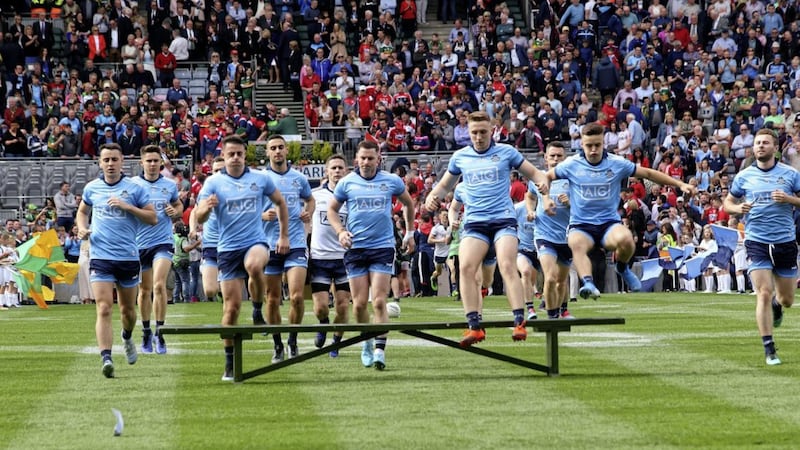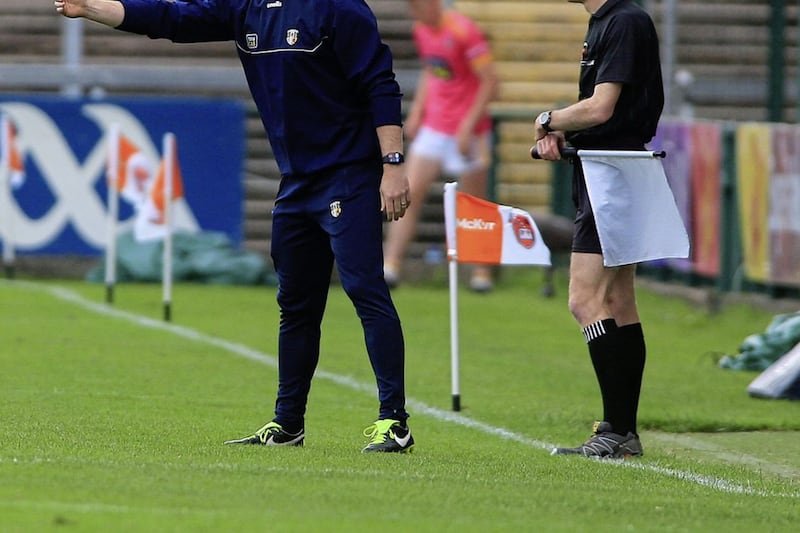The GAA has a definite reputation for been slow to change.
In fairness, they wore this glacial pace of change with pride.
Letting time take its course has, like in nature, allowed it to very gradually mould to the more consistent forces rather than passing trends or fads.
Over the past few years, however, things have taken a rather dramatic turn, culminating in the raft of changes recently passed at Special Congress.
These will see the biggest rule changes since the earliest days of the football coming in right across club, county and underage levels, and these are mirrored off the field by the biggest structural change to the All-Ireland Football Championship since the introduction of the back door at the turn of the millennium.
Like climate change, there have been many forces exerting influence to bring about this acceleration in transformation.
Most obviously, there has been much discontent about the entertainment value of the modern game, captured, iconically, by Pat Spillane’s “puke” football’ line.
Of course, a cursory bit of objectivity – that I’m probably not best placed to bring – would indicate that the football throughout the Noughties would hold its own with any era, and that things didn’t really take a turn for the worse until the tactical and team preparation revolution of the Pat Gilroy and Jim McGuinness era.
The modern ‘amateur professional’ – it only makes sense in the world of the GAA – teams which developed under Gilroy and McGuinness were perhaps the culmination of the gradual commercialism and increased money within the GAA, the seminal moment of which was all the way back in the early 1990s with the relaxing of the sponsorship rules on jerseys.
For some, this acted as the starting pistol of the modern game’s revolution and the climb up the greasy pole hasn’t really let up since.
For many, this increasing influx of money eroded the amateurism – for better or worse – which surrounded the game.
With the increasingly professional teams came the ever-expanding backrooms and the embracing of scientific conditioning, performance analytics and professional approaches.
The less apparent but present knock-on effects of the increased money and professionalism was the increasing pressure for results and pressure on refining tactics and player preparation, which has appeared to rise exponentially.
Mention money, professionalism and results and, inevitably, Dublin spring to mind.
The arguments about the impact of the financial aid Dublin has received are well known at this stage.
The question in the context of rule changes is whether the excellence of Dublin’s current team is partly responsible for the game’s current status as diseased entity in the GAA sick bay that requires urgent help to save.
Dublin, skew all analysis of the modern game.
It is they who make the also-rans look like such no-hopers that they are going to be sidelined to a secondary competition.
It is they who found the effective but boring antidote to the defensive blanket, where keep ball and avoidance of contact or risks are essential elements.
It is they who have sold everyone else on the benefits of large back-room teams so their success can be replicated elsewhere.
It may have been the great unsaid, and the rule changes do not directly negatively effect Dublin in any way, but the general mood of despondency and foregone conclusion that Dublin created was a key factor in the openness to change.
If the changes in the make-up and function of back-room teams has gone into overdrive in the past decade, so too has the coverage of the game.
The coverage from traditional avenues such as television, radio and print have themselves gone through the roof, but add in new platforms such as social media, podcasts and live streaming and the magnitude of the change becomes apparent.
The forces applied by this are multi-pronged.
On the one hand they have a role of increasing the money pumped into the system through advertising revenue or bums on seats.
On another, they give a platform to many voices straining to be heard, either through a need for the limelight or online clicks and viewer figures.
Given that over the past several years the voices have mainly concentrated on bemoaning the quality of the modern game, the obvious impact on the need for change becomes obvious.
While I mentioned money earlier, I didn’t reference the greatest perceived underlying influence on the GAA.
The GAA is run, arguably as it should be, as a multi-million pound business and, as a result, a key influence is profits.
This is completely necessary, to allow the organisation to continue to function at the highest levels of sport but it also inevitably leads to the classic ‘Grab All Association’ jibes.
The cynic in most of us would suggest that the GAAs willingness to change is for financial reasons and, in keeping with this, the dramatic fall in attendances will have done more to sharpen the pencils in Croke Park than any media pressure ever could.
If this is a factor, will the rule changes be enough to change the trend?
By making the game more entertaining – which the rulemakers presumably feel will happen – will people be attracted given the expense of a significant number of games and travel in a short space of time in a competition that has, for several years now, been about seeing who gets beaten by Dublin last.
The issues in the game are more off the pitch than on it.
The modern game had shown positive signs of natural change, something many of the off-field systemic issues have not.
Instead of attempting to deal with the complex, difficult deeply-rooted issues, the GAA has taken the easy way out by playing rule changes.
My one hope is that given the pace at which change is now occurring, the Association may be ready to reconsider should the evidence start to mount against the new rules.






